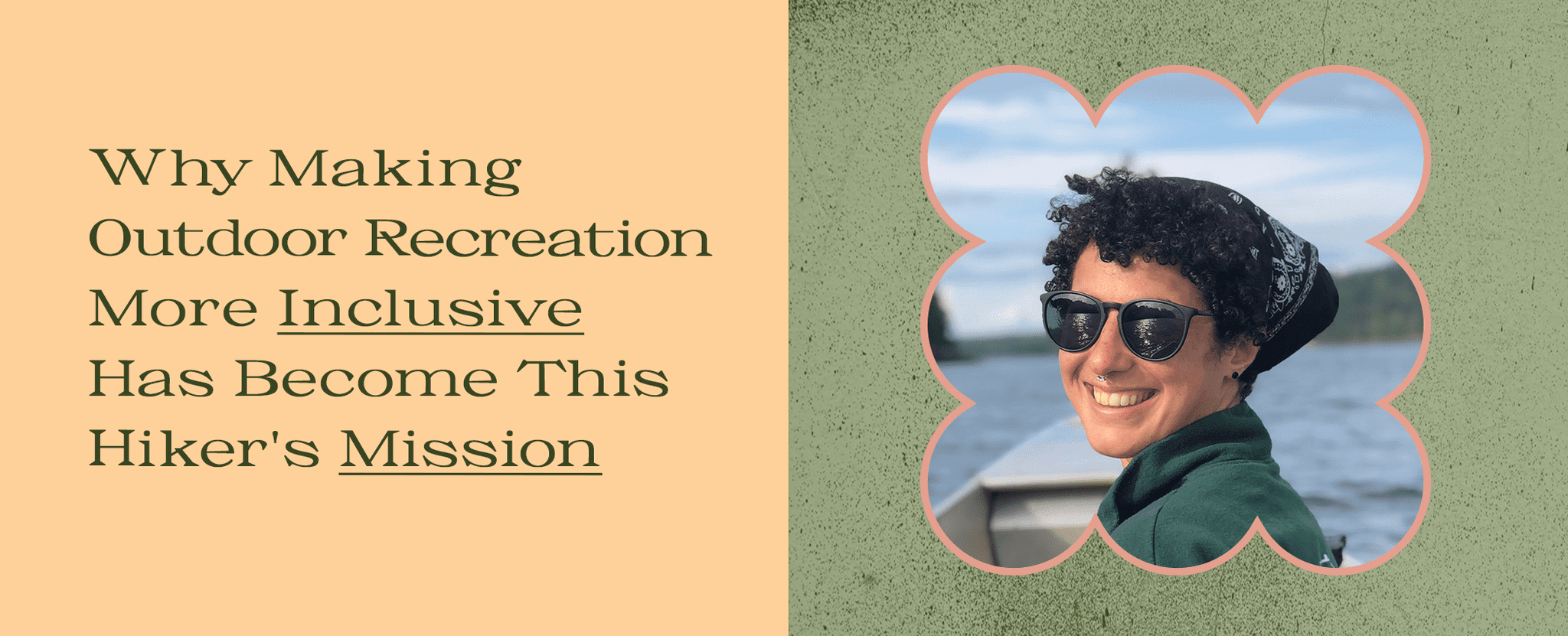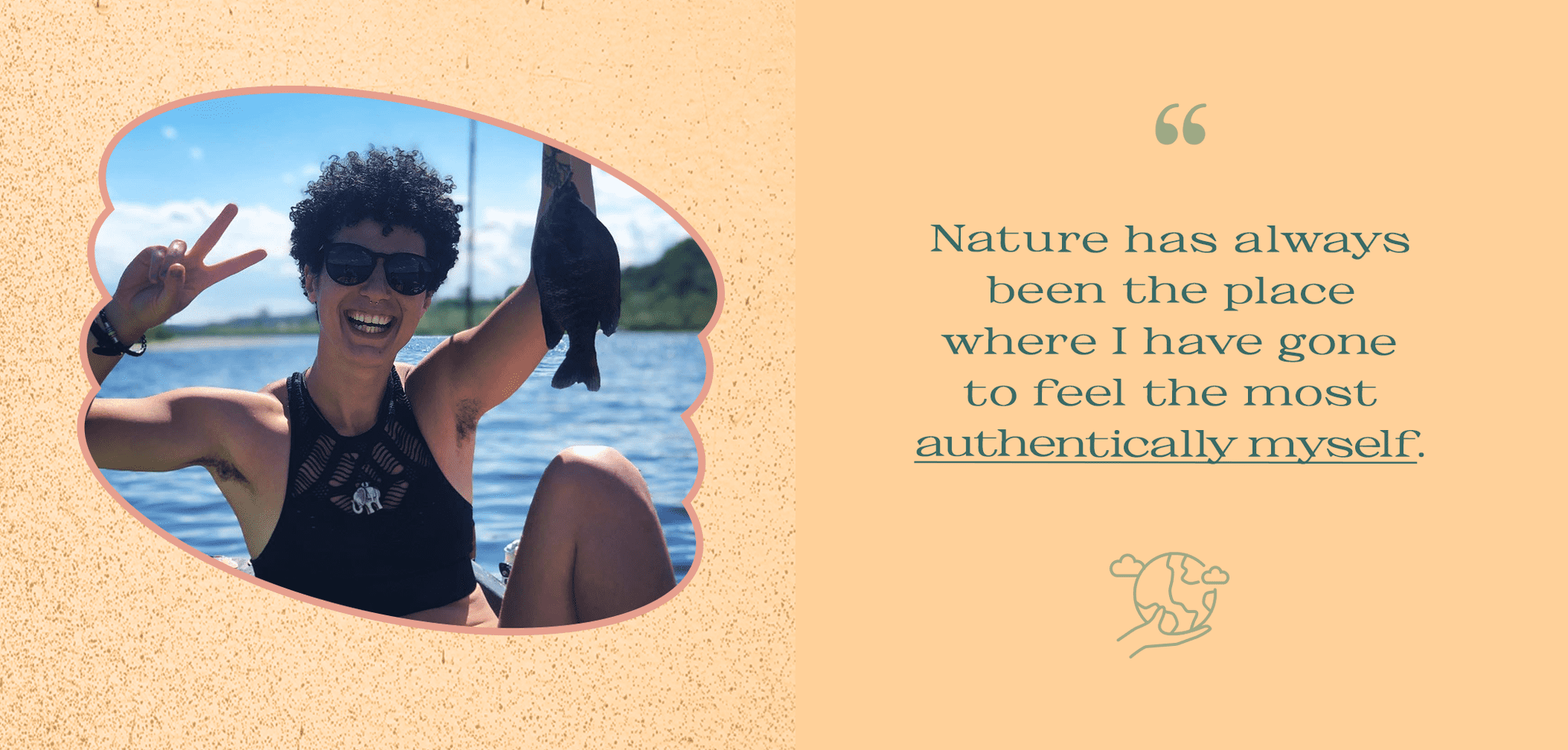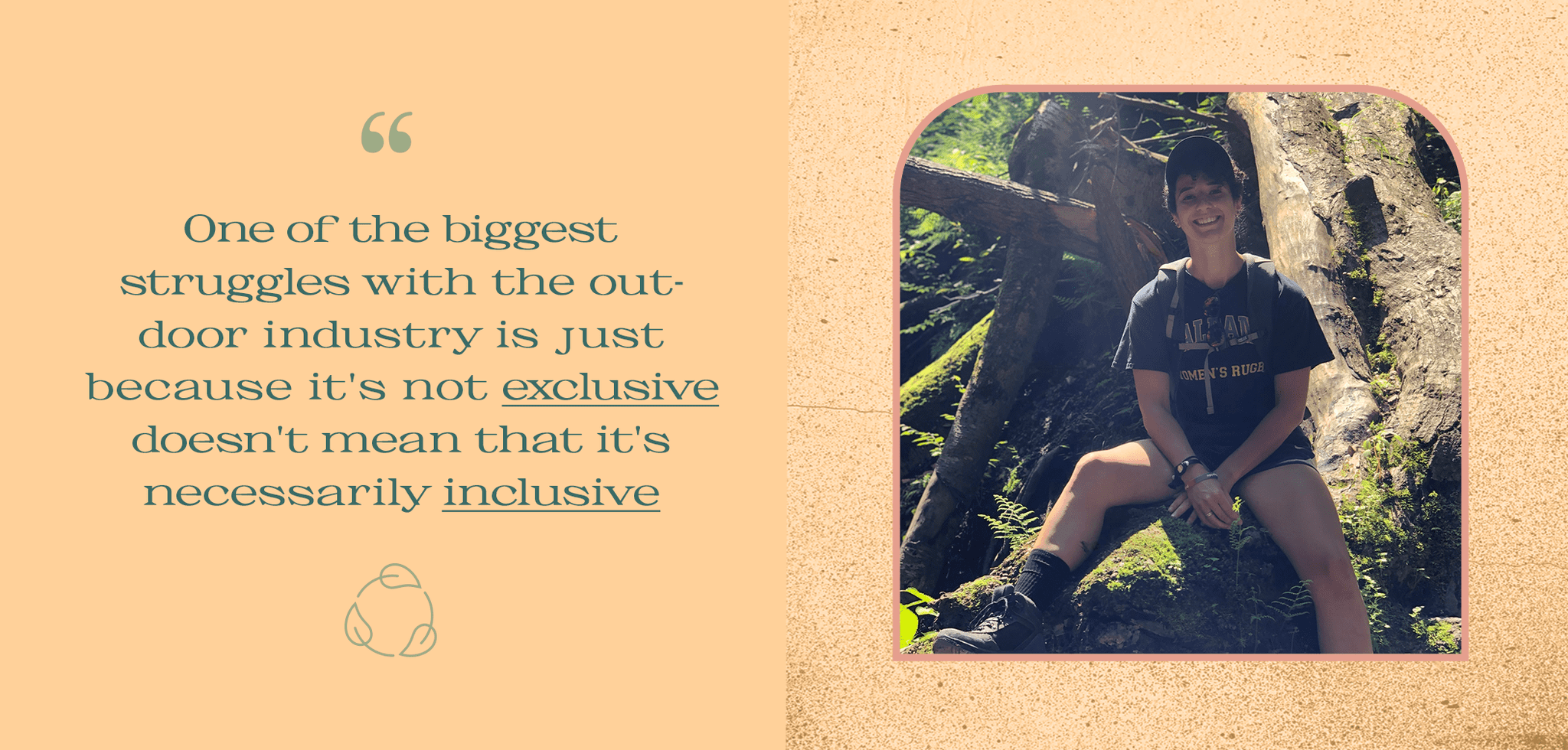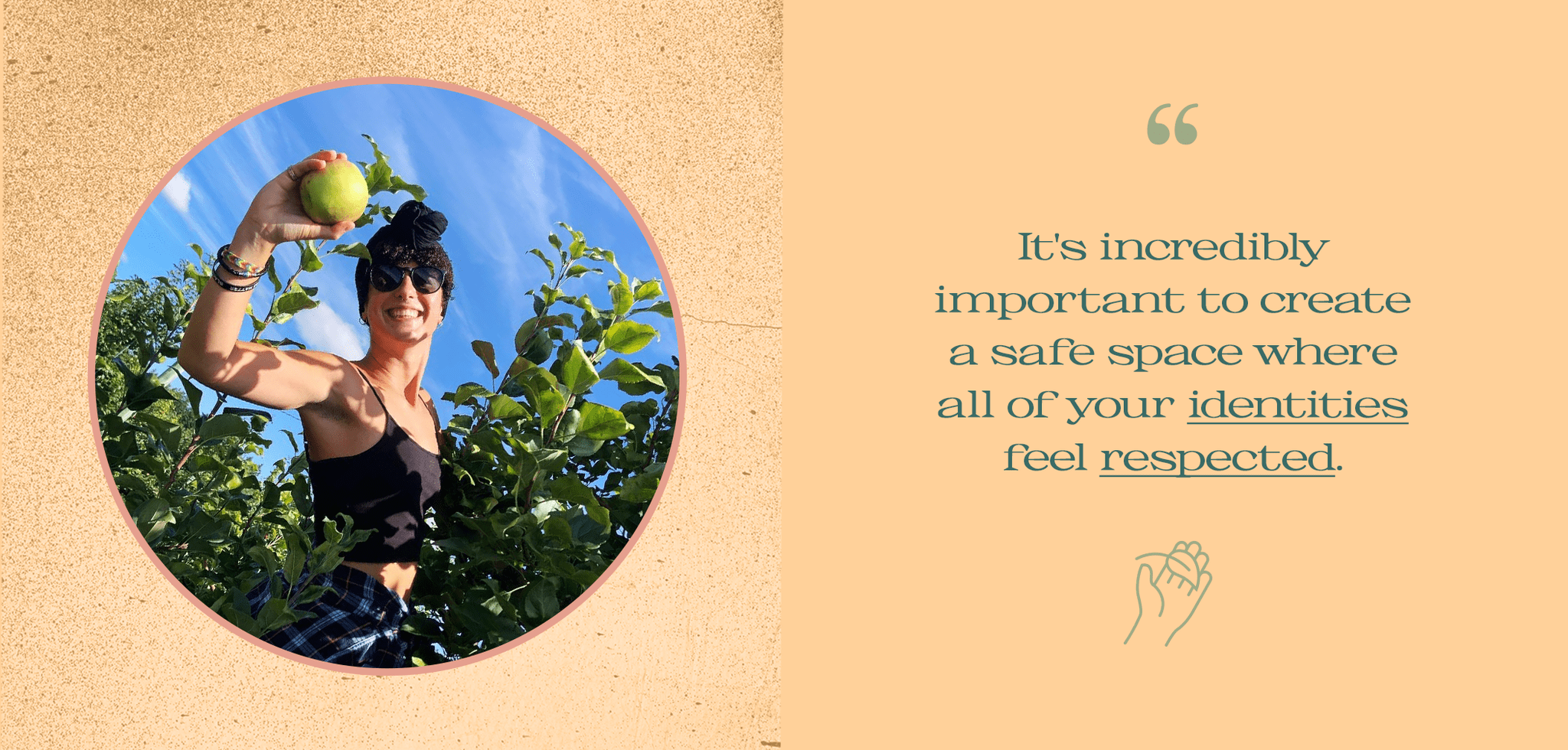
How Kenjah O'Donnell Is Making the Outdoors More Inclusive
Why Making Outdoor Recreation More Inclusive Has Become This Hiker's Mission
Spending time outdoors has always been a part of Kenjah O'Donnell's life. "Ever since I was a kid, I've always been really outdoorsy," they say. As a child, they spent their summers at a sleepaway camp in Maine; as an adult, they started teaching adaptive ski lessons at Jiminy Peak in western Massachusetts. Whatever the setting, O'Donnell has always found peace in nature.
"Nature has always been the place where I have gone to feel the most authentically myself," they say. "As well as being someone in the LGBTQ+ community, I'm also mixed and I also am neurodivergent, and that's a lot of intersectionalities that exist in my life on a day-to-day basis. And whenever I'm out in nature, whether I'm with my friends or I'm by myself, I don't have to wear all these different masks to blend in with the rest of society."
When O'Donnell isn't kayaking, hiking, or skiing, they're working as the volunteer coordinator at The Venture Out Project. They recruit and train volunteers to lead day hikes for groups of LGBTQ+ people across the US and staff the group's retreat, Basecamp at Beaver Falls. It's a mission that's near and dear to O'Donnell's heart: they love sharing their love for nature with others, whether that means going for an afternoon hike or skiing on a snowy morning. Even when the weather is less than ideal, "I cannot be having a bad day," O'Donnell says. "It's one of my favorite places in the world, and I'm getting to watch someone else fall in love with the same thing that I fell in love with."

Trying something new can be daunting if you've never seen someone like you do it before — something O'Donnell knows all too well. "One of my dreams is to hike the Appalachian Trail. And one of my biggest struggles with conceptualizing that for myself is 'what am I going to do with my hair?'" they explain. O'Donnell didn't know anyone with a similar hair texture who had ever completed a long thru-hike, so they had to conduct their own research online to find out what other BIPOC hikers had done. "Seeing someone who occupies something of the same identity as you doing those things makes it seem so much more tangible, so much more realistic," they say. "Representation matters so much."
Showing others in the LGBTQ+ community that they have a place in outdoor recreation is at the heart of The Venture Out Project's mission, and O'Donnell says watching people come together over the course of an afternoon on a hiking trail can be incredibly powerful. On a recent road trip through the Southeast, O'Donnell and a colleague led a series of six different hikes in six different states. "Some hikes had four or five people, some hikes had one person, some hikes had 13 people. It was really beautiful to watch folks all coming together," they say. "There were some hikes where we had some really difficult conversations about the state of the world right now, especially for queer folks, especially for Black and Indigenous people of color who are also queer folks."

O'Donnell hopes to focus specifically on creating a safe space for BIPOC LGBTQ+ people, neurodivergent LGBTQ+ people, and other affinity groups that have been historically excluded from the outdoors. "One of the biggest struggles with the outdoor industry is just because it's not exclusive doesn't mean that it's necessarily inclusive," O'Donnell says. For example, outdoor recreation can be expensive. Many outdoor spaces, such as state and national parks, require entrance fees or parking fees, in addition to the costs of proper gear and finding transportation to the park itself. Accessibility can also be a challenge: is the trail or park accessible for wheelchair users or other people with mobility issues? Is it kid-friendly enough that parents can bring their children along?
Beyond the physical barriers, understanding the role that intersectionality plays in each of our identities is a crucial part of the conversation, O'Donnell says. Safety is a huge factor in how the LGBTQ+ community interacts with nature. "People in the LGBTQ+ community experience a lot of pressures about how they're perceived by others and about the safety aspect of just being out in public," they say. "If you are a queer person, and you are perceived as queer, and you're on the trail, and you're alone, unfortunately, you're in danger. That is something that can be very scary."
BIPOC people also have a fraught history with outdoor recreation. "Black and Indigenous folks in the United States have a different relationship with outdoor recreation than other people of color," O'Donnell says. "Unfortunately, there is a stringent fear within the Black community of outdoor recreation, and that comes from a long history of that being taken advantage of in the United States."

Trip leaders at The Venture Out Project also have to consider intersectionality, or how those identities come together, O'Donnell says. "One thing that has to be recognized is the relationship between the queer community and the queer community of color," they say. "Unfortunately, there is a lot of lack of recognition of all of the work that people of color in the queer community have done, specifically trans people of color. A lot of the rights and laws that have been passed have been on the back[s] of people of color in the trans community. And they still get the least amount of recognition and also the most amount of discrimination."
O'Donnell says that making a conscious effort to recognize all of the individual facets of each participant's identity is crucial toward hosting an inclusive hike or outdoor trip. "It's incredibly important to create a safe space where all of your identities feel respected," they explain. "We have to recognize those barriers in order to be able to create that space for folks to feel safe enough, feel comfortable enough, feel welcome enough in the outdoor community."
Design: Mia Coleman; Photography: Kenjah O'Donnell
